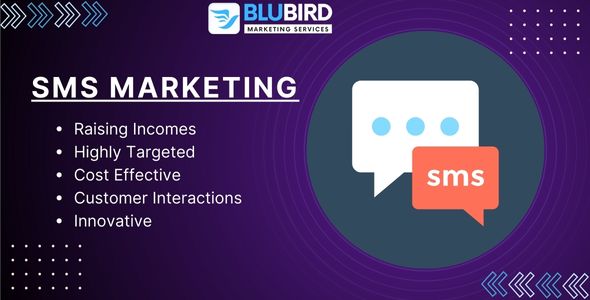In today’s digital generation, businesses are constantly on the lookout for effective marketing strategies to connect with their target audience and promote their products or services. One marketing technique that has proven to be extremely successful is SMS marketing. With over 5 billion people worldwide owning a mobile phone, SMS marketing offers an unparalleled opportunity for businesses to engage with potential customers directly.
However, like any marketing strategy, SMS marketing requires careful planning and execution to achieve desired results. Let’s take a closer look at the key elements that businesses need to consider when implementing an SMS marketing campaign.

1. Compliance with regulations:
Before diving into SMS marketing, it is crucial for businesses to familiarize themselves with the relevant regulations that govern messaging practices in their target regions. In many countries, there are strict guidelines that outline how businesses can send promotional messages, including obtaining prior consent from recipients and allowing them to opt-out easily. Failure to comply with these regulations can lead to severe penalties and damage to a business’s reputation.
2. Building a targeted database:
Once the legal and regulatory requirements are understood, the next step is to build a quality database of recipients who have opted to receive SMS messages from your business. Growing this database through various channels such as website subscriptions, in-store sign-ups, or lead generation campaigns will ensure that you have a relevant audience to engage with.
3. Crafting compelling messages:
SMS messages have a limited character count, typically 160 characters per message. This means that businesses need to be concise, engaging, and clear in their messaging. The goal is to capture the recipient’s attention within seconds. The tone, language, and call-to-action should align with the brand’s personality and the desired outcome of the campaign.
4. Timing and frequency:
Timing is crucial when it comes to SMS marketing. Businesses need to carefully consider the time of day and day of the week when sending out promotional messages. It is essential to avoid sending messages during inconvenient hours or days when recipients are less likely to engage. Additionally, it is crucial to find the right balance between maintaining regular communication and avoiding bombarding recipients with too many messages, which can lead to opt-outs and annoyance.
5. Personalization and segmentation:
To maximize the effectiveness of SMS marketing, businesses should consider segmenting their database and personalizing their messages based on recipients’ preferences, demographics, or past interactions. By sending targeted and personalized messages, businesses can increase engagement and conversions, ultimately driving higher ROI.
6. Tracking and analytics:
To measure the success of an SMS marketing campaign, businesses should utilize tracking and analytics tools. By tracking key metrics such as open rates, click-through rates, conversion rates, and opt-out rates, businesses can gain insights into the campaign’s effectiveness and make data-driven decisions for future improvements.
7. Integration with other marketing channels:
SMS marketing should not be seen as a standalone strategy but rather as a part of an integrated marketing approach. By integrating SMS marketing with other channels such as email, social media, or even offline advertisements, businesses can enhance their overall marketing efforts and create a cohesive brand experience.
Common Mistakes to Avoid in SMS Marketing
Just like any marketing strategy, there are a few common mistakes that businesses should avoid to ensure success.
1. Neglecting to Obtain Consent:
One of the most essential aspects of SMS marketing is obtaining explicit consent from your customers before you begin sending them messages. Failing to do so can lead to legal complications and damage your brand reputation. Ensure that you have a clear opt-in process and provide transparency about the frequency and type of messages you will be sending.
2. Ignoring Personalization:
To make your SMS campaigns more effective, avoid sending generic, one-size-fits-all messages. Personalization is key to engaging your audience, so be sure to segment your customer base and tailor your messages based on their preferences, buying history, or demographics. Adding a personal touch will significantly increase the chances of your recipients engaging with your SMS.
3. Overdoing It:
While SMS marketing boasts an impressive open rate, bombarding your customers with too many messages can quickly turn them off. Respect their privacy, and avoid excessive texting. Find the balance between staying top-of-mind and becoming an annoyance. Sending too many messages can lead to opt-outs and diminished brand loyalty.
4. Failing to Provide Value:
Customers are more likely to engage with SMS messages that offer them exclusive deals, discounts, or valuable content. If your texts lack substance and value, recipients may find them irrelevant and quickly lose interest. Use SMS marketing to provide meaningful information that targets your customers’ needs and desires, whether it’s limited-time offers, personalized recommendations, or helpful tips and tricks.
5. Neglecting to Test and Optimize:
Not testing your SMS campaigns can be a grave mistake, as it hampers your ability to measure success and fine-tune your approaches. Split testing different elements such as timing, message content, call-to-action, and incentives allows you to optimize your campaigns for optimal performance. Continuously track and analyze the data, leveraging insights to refine your strategies and achieve better results over time.
6. Ignoring Compliance and Legal Regulations:
SMS marketing is subject to specific laws and regulations that vary across jurisdictions. Staying compliant with TCPA (Telephone Consumer Protection Act) in the United States or GDPR (General Data Protection Regulation) in the European Union is crucial to avoid heavy penalties and legal trouble. Familiarize yourself with these regulations and ensure you adhere to them at all times.
Conclusion:
In conclusion, SMS marketing is a powerful tool for businesses to engage with their target audience, but it requires strategic planning and execution. By understanding and implementing the elements discussed above, businesses can leverage SMS marketing to create impactful campaigns and achieve their marketing objectives. So, if you haven’t already considered incorporating SMS marketing into your marketing mix, it’s high time to do so and tap into the vast potential it offers.





